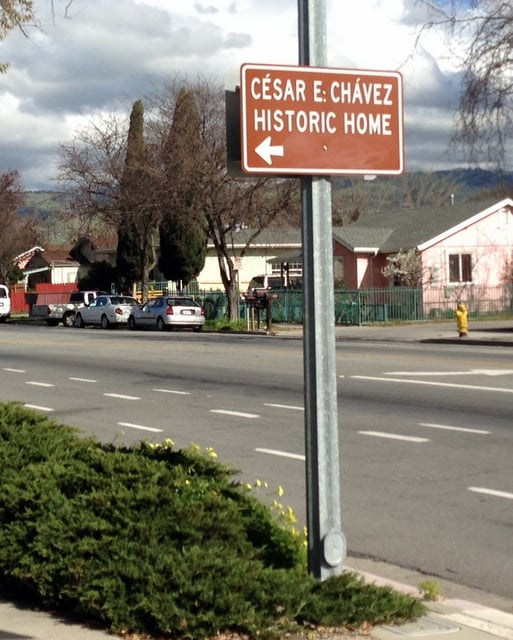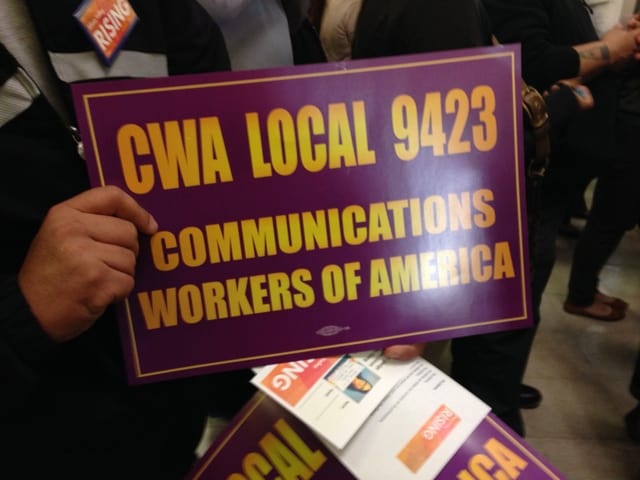Silicon Valley is an area of contrasts. When you stop at a traffic light in Silicon Valley you will often find a Maserati or Tesla on one side of you and a beaten up, 15-year-old Accord on the other. It seems there are more high-end Mercedes, Jaguars, Bentleys or the occasional Maybach than in other areas.
Silicon Valley companies, many run by stock-billionaires, pay a lot at the top, and squat at the bottom. There are the lucky employees, and a huge number of "contractors" – employees who are not called employees. The employees that reach over a certain age are discarded.
There are not a lot of people in the space between Silicon Valley's top and its bottom. One in three Silicon Valley workers cannot even afford to live anywhere within a one-hour drive. The regular three-bedroom house costs a million dollars and don't even ask about the rents (starting at more than $2,000 a month for a one bedroom apartment), but on the streets in working-class neighborhoods there are so many cars parked that you can barely pass – because there are so many people and families crammed into the housing. And, of course, the traffic is terrible, but you have to use a car because public transportation is cut back due to tax-dodging by giant companies like those in Silicon Valley.
The blatant lack of diversity in Silicon Valley companies is a big part of the problem. At the top of these companies it's disproportionately white males. At the bottom it's mostly people of color. In fact, according to the report "Tech’s Diversity Problem: More Than Meets the Eye," "Among the companies who have released data – Facebook, Twitter, LinkedIn, Yahoo, Google and eBay – the portion of their U.S.-based tech workers who were either Black or Latino ranged between 3 to 4 percent."
Meanwhile 74 percent of grounds workers are Hispanic/Latino and 41 percent of security guards and 71 percent of janitors are Hispanic/Latino or Black.
Repeat: the portion of their U.S.-based tech workers who were either Black or Latino ranged between 3 to 4 percent, 74 percent of grounds workers are Hispanic/Latino, 71 percent of janitors are Hispanic/Latino or Black.
And, of course, the pay reflects this "occupational segregation." The San Jose Mercury News reports that workers with high-skill jobs have a median income of $118,700. Workers holding low-skill jobs have a median income of $27,000. There is also a sharp gender divide. "For those with a bachelor's degree, male workers in Silicon Valley have a median yearly income of $90,000 and female workers are at $56,000 – meaning male wages are 61 percent higher. For those with a graduate degree, male workers were at the $125,000 median income level, and female workers were at $83,000 – a 51 percent difference."
Repeat: High-skill (tech, mostly white) jobs, median pay $118,700. Low-skill jobs (mostly not white) median pay $27,000. Men with undergraduate degrees get 61 percent more than women with the same degree, and 51 percent more with graduate degrees.
Silicon Valley Rising
In the midst of all this, a number of labor, faith and community groups have joined together to address income inequality, create affordable housing and urge corporate responsibility among tech companies. On Friday I attended the launch of the new coalition, called Silicon Valley Rising, which will engage in a comprehensive campaign to "raise wages, create affordable housing and build a tech economy that works for everyone." From their website:
While tech companies make massive profits, the workers who keep them running smoothly have been left behind.
Silicon Valley Rising is here to fix that by raising wages, creating affordable housing, and growing our middle class.
The launch event took place at McDonnell Hall, Our Lady of Guadalupe Catholic Church. As significant as this event was, the location of the event amplified its significance. Two blocks from the event I passed this sign:

McDonnell Hall, the building where the coalition launch event was held, is in line to become a national historic landmark.
Chavez met there with other members of the Community Service Organization in the 1950s and 1960s to plan voter registration drives, civil rights lawsuits and legislative campaigns. They also taught citizenship and literacy classes. He later employed those skills to organize the United Farm Workers union and the famous grape boycott that launched him to national prominence as a civil rights leader and advocate of nonviolent protest.

(Photo of McDonnell Hall by South Bay Labor Council)
From these roots Silicon Valley Rising will organize to lift the Valley's low-wage workers. Silicon Valley Business Journal writes in "New Silicon Valley coalition rises to attack income inequality":
The group will focus its considerable membership and lobbying strength on improving wages, increasing affordable housing options for renters and holding tech companies accountable for how contract workers are compensated.
Silicon Valley Rising will organize and fight for tech service workers, drivers, kitchen staff, security guards, maintenance workers, groundskeepers, cleaning staff, shuttle bus drivers and other support workers.
Father Jon Pedigo, pastor of the church, began by reading, "Come now, you rich people, weep and wail for the miseries that are coming to you... You have condemned and murdered the righteous one, who does not resist you."
Fr. Jon added, to loud cheers, "But today we offer resistance!"


(Photos of Father Pedigo by South Bay Labor Council)
As Henry Millstein reports, "Another local progressive religious leader, Rabbi Dana Magat, read a passage from the prophet Jeremiah denouncing a king "who makes his neighbors work for nothing and does not give them their wages," concluding, "It's time to rise up!" to which the crowd responded with shouts of "¡Sí se puede!""

(Photo of Rabbi Magat by South Bay Labor Council)
Ben Field, executive director of the South Bay Labor Council, said "No one who works hard and plays by the rules should live in poverty. Silicon Valley Rising is a comprehensive effort to allow everyone to thrive in Silicon Valley's tech economy."

(Photo of Ben Field by South Bay Labor Council)
Rome Aloise, VP At-Large of the Teamsters, spoke about the bus drivers. Drivers who work for the company that contracts with Apple, eBay, Genentech, Yahoo and Zynga to drive their employees to and from work were voting on a contract at the same time as the launch event was taking place. (The results were 104-38 in favor of the union.) Facebook's drivers had already unionized and received a raise of up to $9 an hour, an end to split shifts requiring drivers to sit around for hours with no pay, health benefits and a retirement plan. "For the companies it is about what they spend on ping pong balls," Aloise said.

(Photo of Rome Aloise by South Bay Labor Council)
Also speaking at the event were Derecka Mehrens, Executive Director of Working Partnerships USA; Luisa Blue, chief elected officer of SEIU Local 521 and Denise Solis of SEIU-USWW.
Partners in the coalition are:
- The South Bay Labor Council (See their not-limited-to-labor blog The Left Hook.)
- Working Partnerships USA - see Silicon Valley on the Rise, Now's the Time to Organize.
- Community groups including Silicon Valley Debug, Christian Homeless Alliance Ministries (CHAM), San Jose/Silicon Valley NAACP and Latinos United for a New America (LUNA).
- Unions including Unite Here, Teamsters, and SEIU-USWW.
Spotted at the event:

(Photo by Dave J)





(Photos by South Bay Labor Council)
Already Achieving Results
The organizing effort that led to the formation of the Silicon Valley Rising coalition is already achieving results. Apple announced on Tuesday it will drop its contractor and make its security officers employees with benefits and predictable working hours. From a Silicon Valley Business Journal news report, "Apple to hire security guards as full-time employees as organized labor gains ground":
"Apple recently completed a comprehensive, year-long review of its security program and we've decided to directly hire a number of key onsite security roles for Apple's Silicon Valley operations which are currently contract positions," Apple said in statement. "We will be hiring a large number of full-time people to handle our day-to day security needs. We hope that virtually all of these positions will be filled by employees from our current security vendor and we're working closely with them on this process."
This is a big deal and Silicon Valley Rising is a big deal. This and organizing efforts like it across the country will help improve pay, benefits and working conditions for millions of people.
----
This post originally appeared at Campaign for America's Future (CAF) at their Blog for OurFuture. I am a Fellow with CAF. Sign up here for the CAF daily summary and/or for the Progress Breakfast.


















